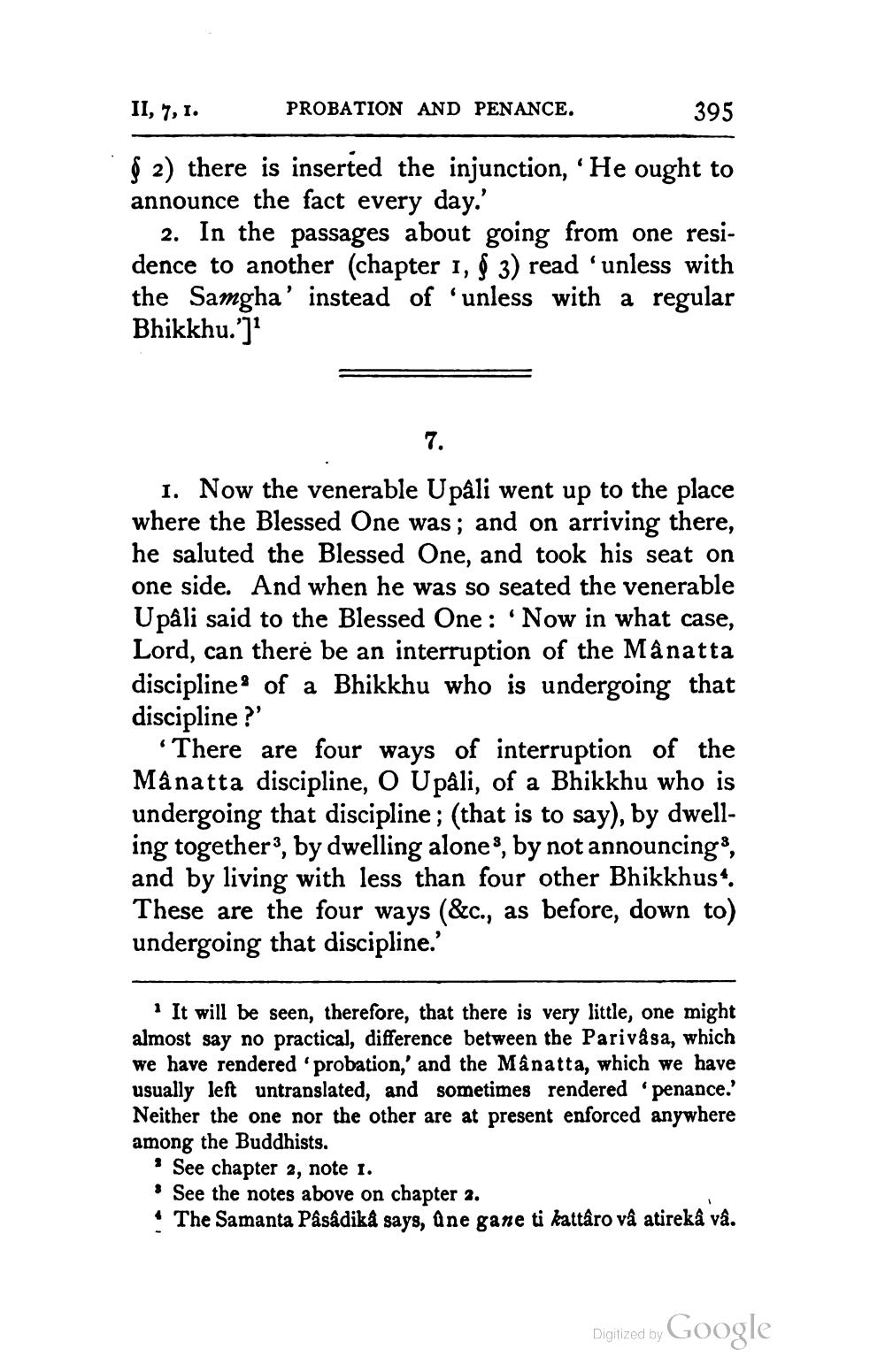________________
II, 7, 1.
PROBATION AND PENANCE.
395
§ 2) there is inserted the injunction, 'He ought to announce the fact every day.'
2. In the passages about going from one residence to another (chapter 1, § 3) read 'unless with the Samgha' instead of unless with a regular Bhikkhu.''
1. Now the venerable Upali went up to the place where the Blessed One was; and on arriving there, he saluted the Blessed One, and took his seat on one side. And when he was so seated the venerable U pâli said to the Blessed One: "Now in what case, Lord, can there be an interruption of the Manatta discipline of a Bhikkhu who is undergoing that discipline ?'
*There are four ways of interruption of the Mânatta discipline, O Upåli, of a Bhikkhu who is undergoing that discipline; (that is to say), by dwelling together, by dwelling alones, by not announcing, and by living with less than four other Bhikkhus“. These are the four ways (&c., as before, down to) undergoing that discipline.'
1 It will be seen, therefore, that there is very little, one might almost say no practical, difference between the Parivasa, which we have rendered 'probation,' and the Manatta, which we have usually left untranslated, and sometimes rendered 'penance.' Neither the one nor the other are at present enforced anywhere among the Buddhists.
* See chapter 2, note 1. . See the notes above on chapter 2. • The Samanta Pasadikå says, ane gane ti kattaro và atirekâ vå.
Digitized by
Digilzed by Google




